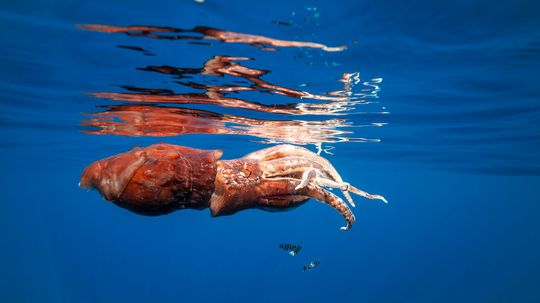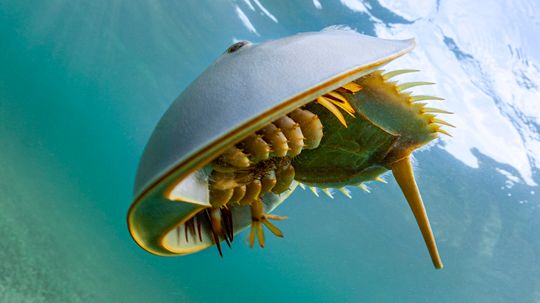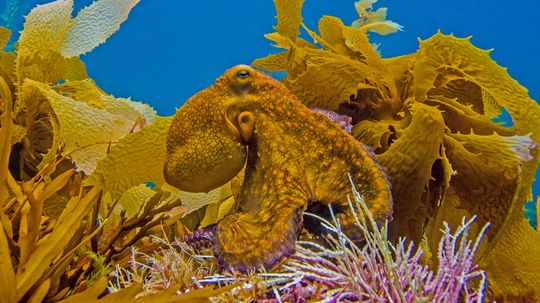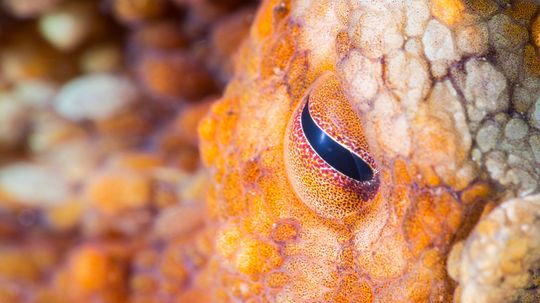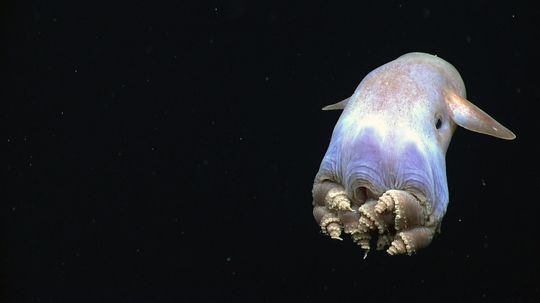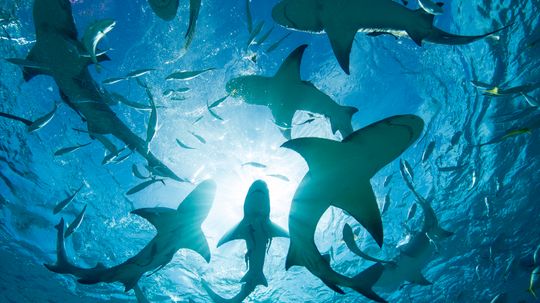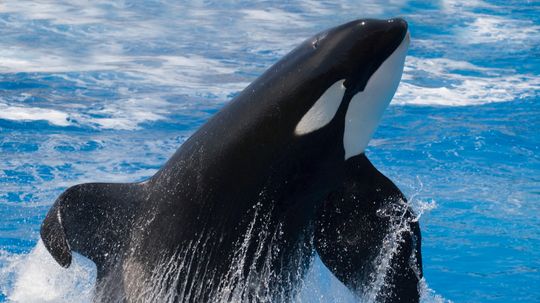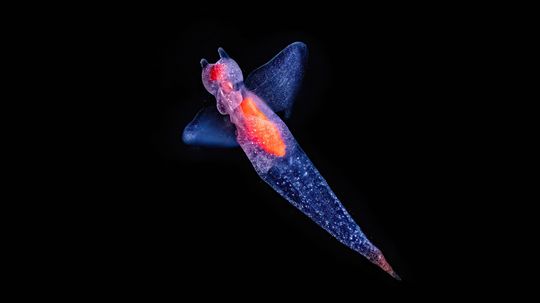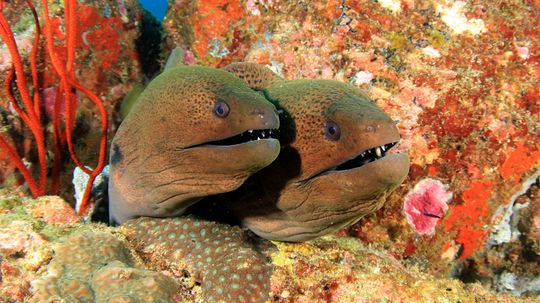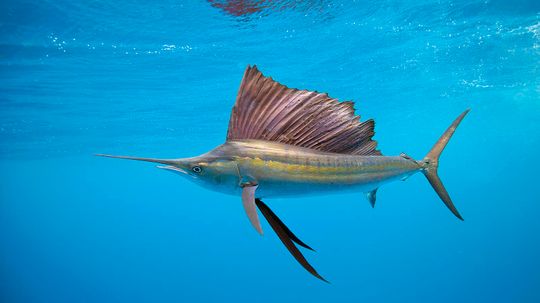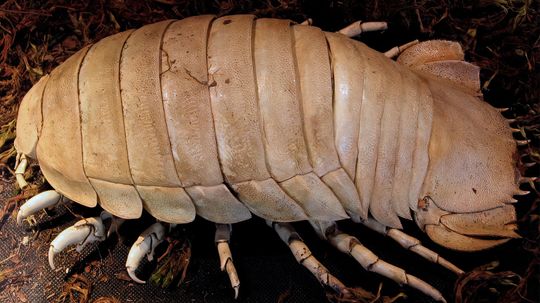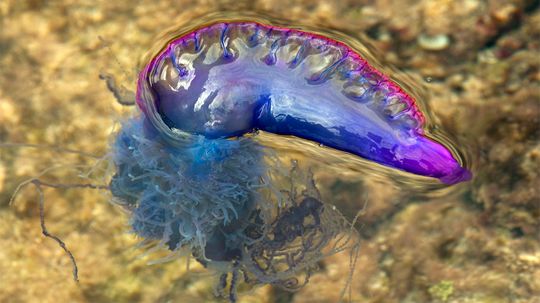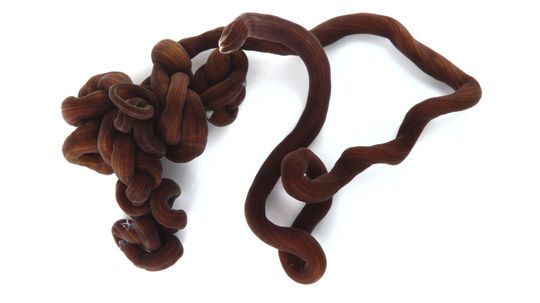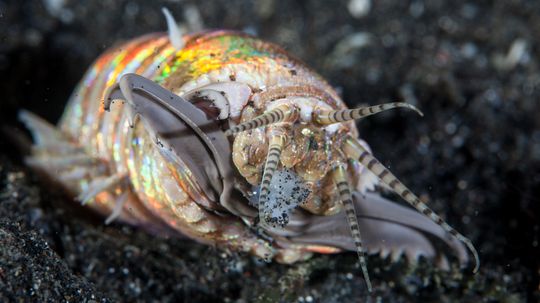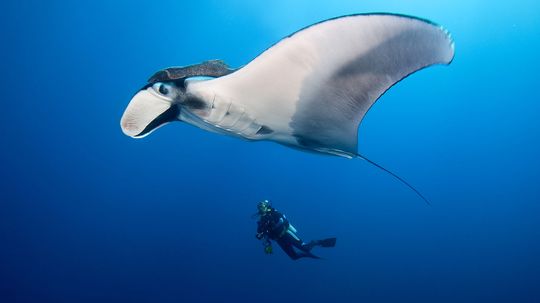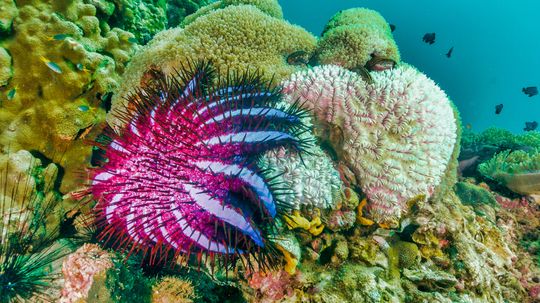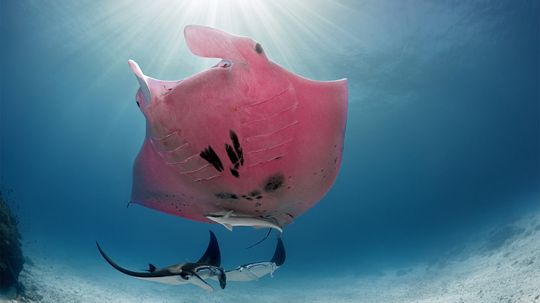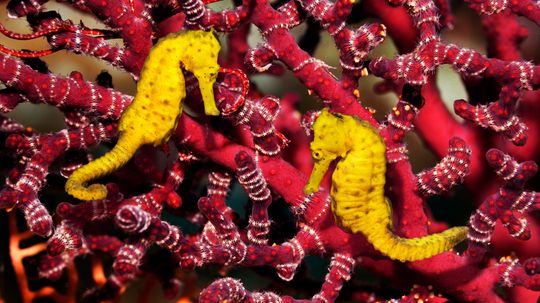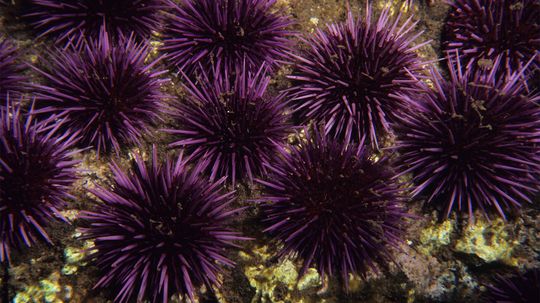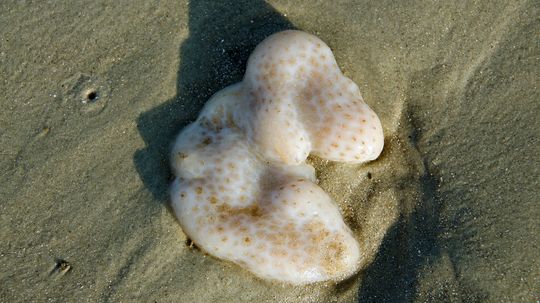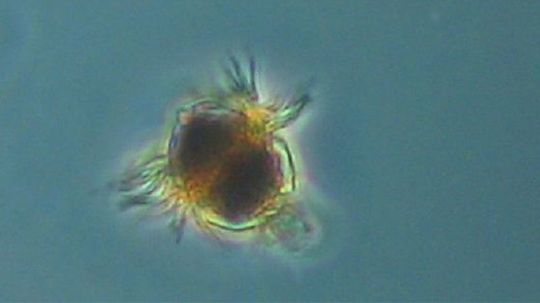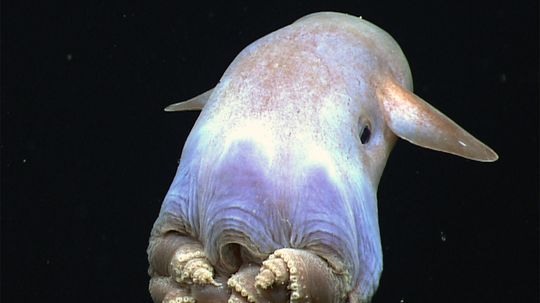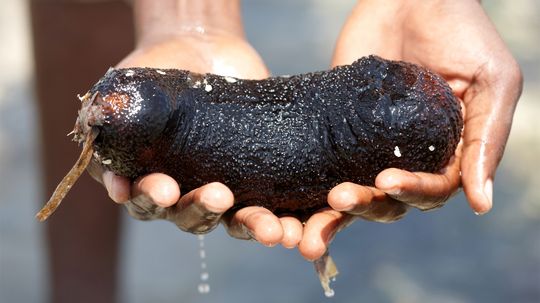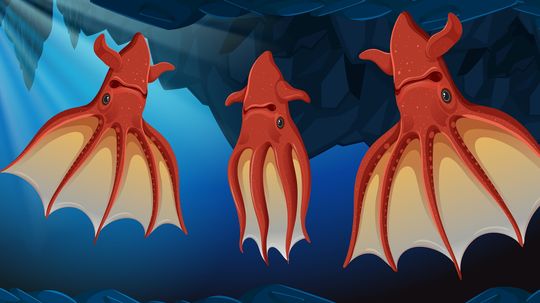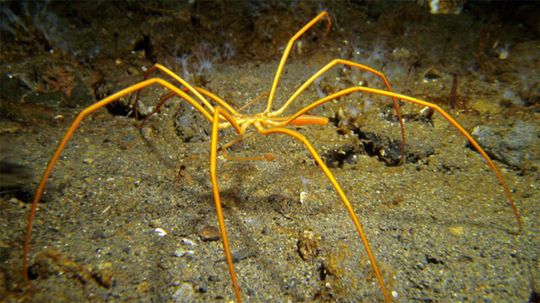Other Marine Life
Learn about some of the some of the most bizzare marine life under the sea, such as Sea Squirts, sponges and even Sea Monkeys.
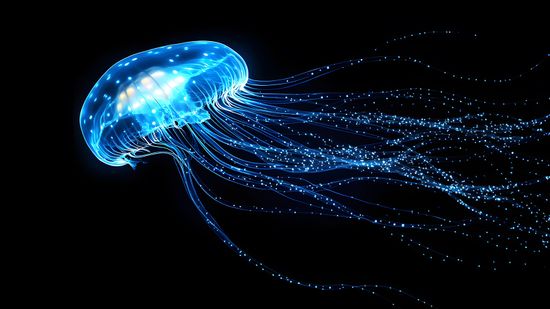
How Bioluminescent Jellyfish Get Their Signature Glow
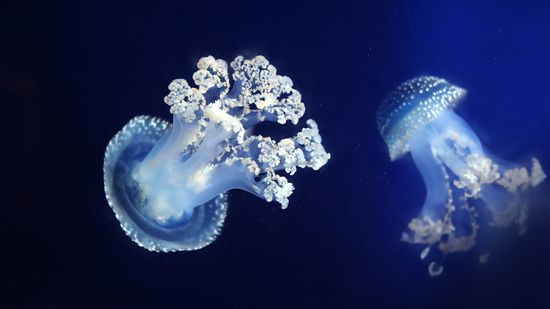
White Spotted Jellyfish: Cute Until They Become Invasive
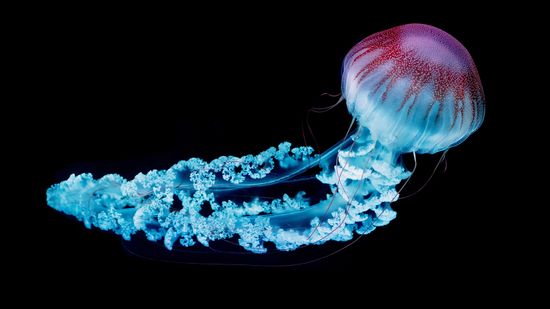
Deep Sea Jellyfish Have 30-foot-long Tentacles
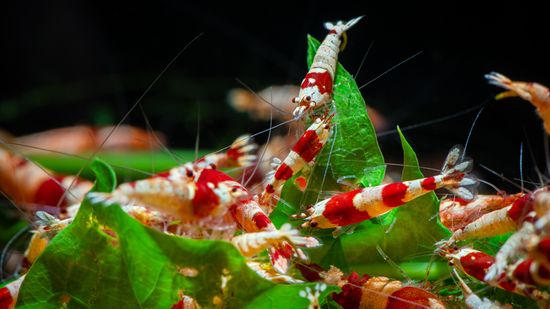
What Is a Group of Shrimp Called? (Hint: You'd Use the Term for Bugs)
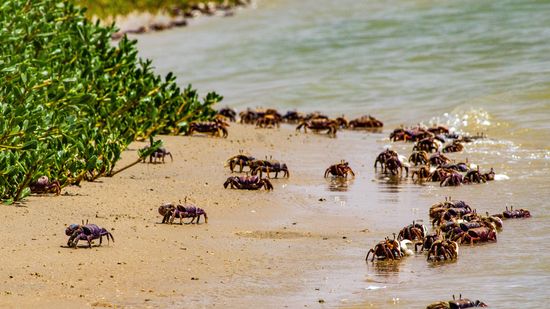
What Is a Group of Crabs Called? A Scuttle, a Clamor, a Cast?
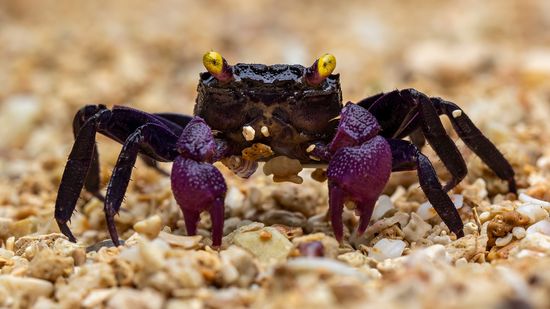
Vampire Crab: More Cartoonish Than Blood-sucking
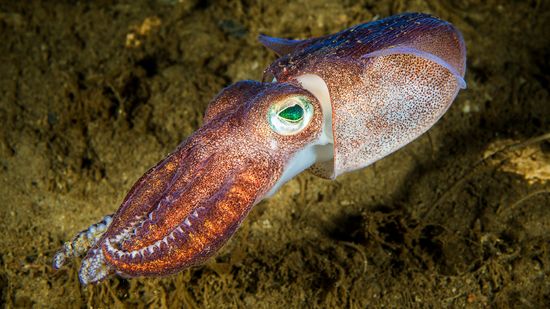
What Is a Group of Squid Called? Not a Squad, Unfortunately
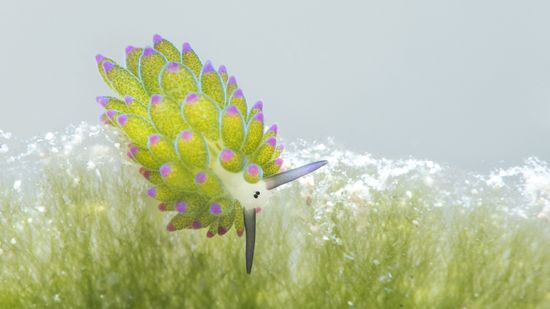
No, the Leaf Sheep Sea Slug Is Not an AI Hallucination
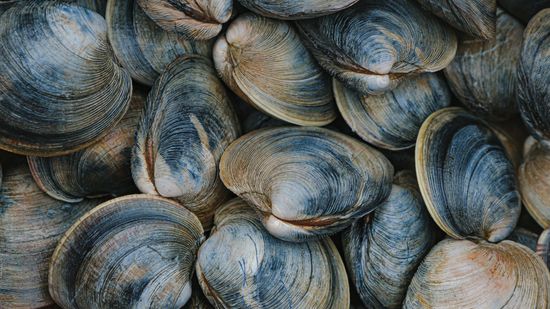
An Ocean Quahog Shows Its Age Like Rings on a Tree
Learn More
When you think of a showdown between deep-ocean giants, what comes to mind is probably the colossal squid vs. giant squid.
By Nico Avelle
The horseshoe crab might look like a creature from another planet, but it’s a vital part of Earth’s marine ecosystems.
By Nico Avelle
Octopuses are known their eight legs, squishy bodies and impressive problem-solving skills. But did you know there are over 300 types of octopus species?
By Ada Tseng
Advertisement
Octopuses are cephalopods that have three hearts and eight arms that are covered with suckers. The largest octopus is the giant Pacific octopus. As its name suggests, the Giant Pacific Octopus lives in the North Pacific Ocean.
By Ada Tseng
Deep in the ocean, living in eternal darkness, is the dumbo octopus (of the genus Grimpoteuthis), a creature that few humans have seen face-to-face. When someone is lucky enough to spot one, they're often captivated by its charms.
If you're afraid of sharks, stop reading now, because we're about to get in deep with six types of sharks. Learn more about these fascinating fish - big and small, solid and patterned, sluggish and speedy.
By Sascha Bos
Orcas are known as "killer whales" because they are apex predators. In the wild, highly social killer whales prey on sharks, seals, dolphins and even other whales.
By Sascha Bos
Advertisement
Far below the ocean's surface, in the dark depths of the deep sea floor ecosystem (about 3,000 feet or 1,000 meters deep), exists an entire world of deep sea creatures that humans rarely glimpse.
By Sascha Bos
It's a slippery proposition, to be sure, but bees do it, birds do it and you can bet that eels do it too. The question is, how do eels reproduce?
By Mark Mancini
Sailfish are the fastest known animal in the ocean. Just how fast? As fast as a cheetah. That's how fast.
Tons of these humongous bug-like creatures live in the darkest depths of the sea, but they are still somewhat of a mystery to us humans.
Advertisement
Even washed up on the beach, the Portuguese man-of-war can deliver searing pain with its stinging tentacles, so whatever you do, don't touch it.
By Mark Mancini
You might not think a worm could be longer than a whale, but allow us to introduce you to the bootlace worm, one of the longest animals on the planet. And, oh and it packs a potent toxin, too.
By Mark Mancini
Yes, this terrifying worm was named after the infamous Bobbitt case. And with good reason.
By Mitch Ryan
These two sea creatures can be easy to confuse. But they're actually quite different. We talked to experts to find out how to tell them apart.
By Wendy Bowman
Advertisement
What lives in water, has no gills, scales or fins and is not a fish? Yep, a starfish - which is why marine biologists have renamed these creatures sea stars.
By Mitch Ryan
A bright pink manta ray named Inspector Clouseau is causing a splash on the runway of the Great Barrier Reef.
Dwindling natural habitats are causing a significant decline in certain seahorse species. To bolster populations, researchers in Australia are building seahorse hotels and leaving the lights on.
By Wendy Bowman & Talon Homer
What sea creature looks like a spiny pincushion and is considered a delicacy to gastronomes around the world? Yep, the sea urchin.
By Jeremy Glass
Advertisement
Is that a dolphin pancreas? Some extremely firm manatee vomit? Nope, it's sea pork!
The single-celled Mesodinium chamaeleon harnesses algae, which lives inside it, for energy.
By Loraine Fick
The Dumbo octopus is just one of the amazing creatures filmed by the most recent voyage of the E/V Nautilus.
The kindest thing you can say about a sea cucumber's physique is that it looks very much like a large hoagie bun dressed in a lumpy old sweater.
Advertisement
You can't tell a book by its cover, and you can't tell a squid by its Nosferatu getup.
By Jesslyn Shields & Ada Tseng
Sea spiders don't do anything by the book, and researchers have just gotten to the bottom of how they breathe.
By Jesslyn Shields & Ada Tseng
